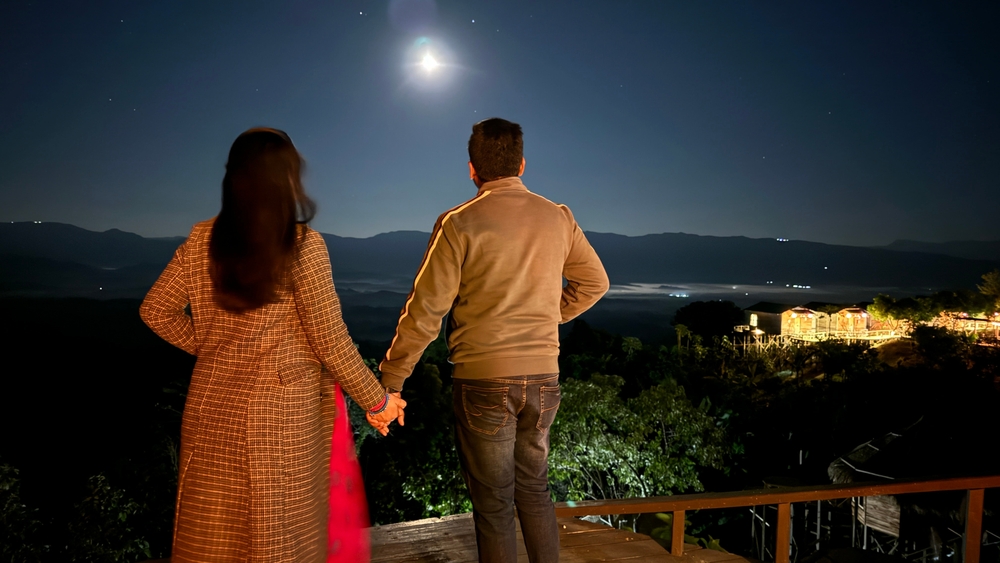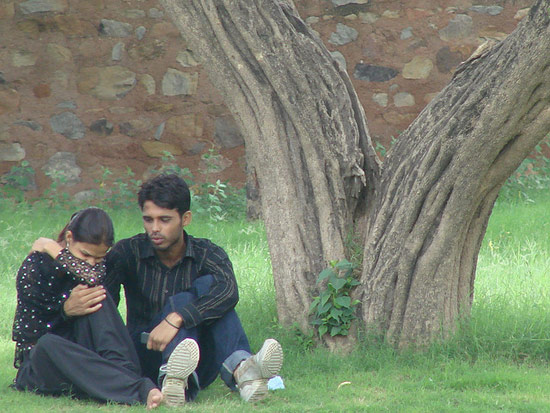Life Stages: Dating and Courtship
Indians in most parts of the country frown upon Western-style dating, especially in rural and semi-urban areas. However, dating is becoming more common in urban areas, particularly in the metros and larger cities. Many of those dating do so in a covert fashion, without the knowledge of their parents or under the guise of group socializing.
Modern Issues
Recent years have witnessed the strident display of intolerance towards dating and romance by Hindu and Muslim fundamentalist groups, especially on Valentine’s Day. Among the Hindus, the Shiva Sena (Army of Shiva) spearheads a virulent anti-Valentine campaign, which regards the day as a Western cultural conspiracy. Every year Shiva Sena goons ransack gifts shops, burn Valentine’s cards, and beat up dating couples at restaurants and parks. Dating couples have been harassed also by the police in various parts of the country.
Dating, wherever it occurs, starts in the late teens. Men and women meet each other at educational institutions and social events such as weddings and festivals.
Arranged marriages, fixed by parents, relatives, friends, or professional matchmakers, continue as the norm in most parts of India except for the northeastern states. Although many urban youth these days are increasingly choosing their spouses (known as "love marriages"), the vast majority of young Indian men and women (even highly educated ones) approve of the arranged system of marriage.
Desired Attributes
Perceptions about the desirable attributes of men and women have changed much in recent years in India. Traditionally, emotional strength and self-reliance has been, and still is, considered the ideal attribute in men. Many women also see the ideal man as a kind of nurturing father-figure who would pamper and coddle them. Some women seek "God-fearing" men above all. Increasing numbers of highly educated urban women admire men who treat women as equals.
Men have sought women with attributes of beauty, chastity, submissiveness, and homemaking skills. This view holds even now, despite the deification of women in Indian culture and mythos as Shakthi (primal force), Maya (the weaver of cosmic illusion), and Kali (goddess of death and destruction). The matrimonial columns of India’s innumerable vernacular and English language newspapers, as well as the many online matrimonial sites, offer a revealing insight into male perceptions regarding women. Men desire women with fair skin, as well as "domesticated" women and women with "clean habits."
Although males in some parts of the country hold more relaxed attitudes towards premarital sex, especially the northeast, the average Indian male’s concerns regarding the virginity of unmarried women verges on the point of obsession. One example, known as the "Kushboo controversy," the whole south Indian state of Tamil Nadu flew in an uproar after well-known actress Kushboo advised young girls engaging in premarital sex to use contraceptives in order to avoid HIV/AIDS and unwanted pregnancy. She also advised young men not to expect their wives and girlfriends to have been virgins. After that statement, she was constantly harassed, dragged into court, pelted with shoes, and required police protection.
India’s cities, melting pots of various ethnic and religious groups and cultures, find cross-cultural and cross-religious dating not uncommon. Since many date without the knowledge of parents, or disguise it as group socializing, the question of parental approval does not arise.
Parents on both sides continue to arrange most Indian marriages and handle most marriage proposals.
Copyright © 1993—2024 World Trade Press. All rights reserved.

 India
India 
